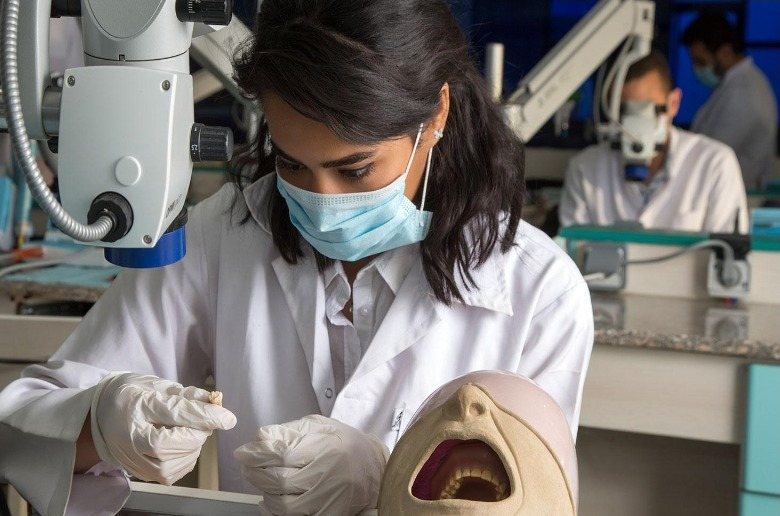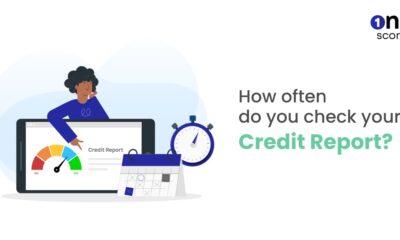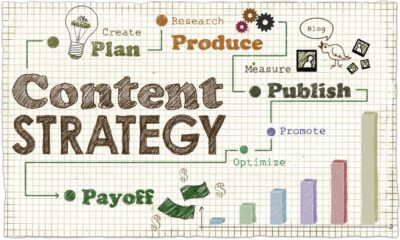

Education
10 Best Full Stack Developer Certification Courses Online 2021
So you are thinking about starting a career in full-stack development. You may have some idea about this field but are unsure of how to get started and learn the required skills. Today, full-stack web development has become so popular that many training providers have started offering online courses on this subject. You will find Full Stack Web Development in Bangalore, Chennai, Hyderabad, Mumbai, and all other cities. Irrespective of the location, one can also enroll in online full-stack development courses.
This article introduces you to the top 10 online full-stack web development courses. So, let’s get started.
Post Graduate Program in full Stack Web Development by Simplilearn
Offered in collaboration with Caltech CTME, this full-stack web development course is ideal for those who want to learn modern coding techniques and gain all the skills needed to become a full-stack technologist. Some of the top concepts covered in the program include Angular, Hibernate, MVC, Spring Boot, Node.js, MongoDB, Servlets, JSPs, and more. You will go through 250+ hours of applied learning and masterclasses taken by Caltech CTME faculty.
Full Stack Web Developer Nanodegree Program by Udacity
This 4-months comprehensive training program helps you develop the unique skills required to design database-backed APIs and web applications. You will learn about SQL and data modeling for the web, API development and documentation, identity access management, and server deployment and containerization in detail. There are 5 industry projects where you can apply your full-stack development skills and showcase them in front of employers.
Full-Stack Software Engineer Career Path by Codecademy
Codecademy offers this career path for those who want to master the tools that front-end developers use like react, CSS, along with server-side JavaScript libraries like Express.js. Apart from front-end and back-end technologies, you will learn to create your own API. The instructors will also teach you how to build portfolio-worthy projects to showcase your web developer skills. JavaScript syntax, Git GitHub, web development basics, hosting sites, and building interactive websites are some of the important topics covered.
Beginner Full Stack Web Development: HTML, CSS, React & Node on Udemy
This beginner-friendly course explores the concepts of HTML, CSS, working with NoSQL databases like MongoDB, building backend servers and APIs, mobile-friendly websites with Bootstrap 4 and CSS, and building full-stack web pages with React. The syllabus is divided into 18 sections having 168 lectures and the duration is 31.5 hours in total. You will become familiar with the top skills like JavaScript, DOM manipulation, NPM, Node, REST, ES6, HTML, CSS3, and React.
IBM Full Stack Cloud Developer Professional Certificate by IBM on Coursera
If you want to become a cloud developer, then this certification is for you. The program lets you master cloud-native and full-stack development using hands-on projects involving JavaScript, HTML, Python, Django, Node.js, microservices, and containers. You can also build your GitHub portfolio by applying your Full Stack cloud development skills with multiple labs and industry-oriented projects, along with a capstone. There are 10 courses included in this professional certificate and will take you around 13 months to complete (3 hours per week).
Become a Full-Stack Web Developer Learning Path by LinkedIn Learning
LinkedIn, a popular professional networking site, offers this 12-course learning track to help candidates build a solid foundation in full-stack development. The instructor will take you through working with servers and host configurations, performing database integrations, and building dynamic, data-driven websites. You will also explore core server languages like Node.js, PHP, Ruby on Rails, and .NET. It will take you around 29 hours to complete the syllabus.
Become a Full-Stack .NET Developer by Pluralsight
Want to know how professionals and experienced developers build an application from A to Z? If yes, then this course by Pluralsight is for you. Learn how to build a real-world mini social networking application with ASP.NET MVC 5 and Entity Framework 6 through this training program. You will know how to move step-by-step starting with a plain requirements document, breaking it down into tasks, and building the entire application end-to-end in an agile way. The course duration is 5 hours 34 minutes.
Full Stack Web Development for Beginners by Skillshare
This is a four-part course designed by Chris Dixon to help beginners learn everything about building full-stack websites and applications. For example, the first part focuses on front-end development, covering HTML, CSS, and responsive web design. The second part focuses on the CSS Flexbox, CSS Grid, and the Bootstrap 4 framework. The third part deals with JavaScript, APIs, and fetching data, meaning it covers all of the JavaScript fundamentals. The fourth part finally covers Node, Express, MongoDB, routing, templating, authentication, and deployment.
Full Stack Web Developer – MEAN Stack Master’s Program by Simplilearn
One of the technology stacks used for full-stack web development is the MEAN stack – MongoDB, Express.js, Angular, and Node.js; and this course helps you become well-versed in using this stack. Additionally, you will learn about HTML, GIT, CSS, and JavaScript to build and deploy interactive applications and services. With 270 hours of in-depth training, 10 lesson-end and 4 phase-end projects, your profile will stand out as a MEAN stack developer.
Full Stack Web Development with React Specialization by Coursera
This is another popular full-stack development course on Coursera and helps you learn front-end and hybrid mobile development, with server-side support, for implementing a multi-platform solution. On the front-side, it covers Bootstrap 4 and React; on the back-end, it covers implementing NoSQL databases using MongoDB, working within a Node.js environment and Express framework, and communicating to the client-side through a RESTful API.
Education
Simple Ways to Connect with Younger Pupils

A teacher in charge of a classroom of young students will always want to find ways to connect with the minds in the room. The truth is, there are a number of simple ways to find that spark with young learners that all educators can embrace. This will not just enhance the classroom experience but also impact better learning overall as well. Here are some ideas on how to make it possible.
Focus on Self Development
Any teacher is capable of learning as well as imparting knowledge. The path towards self-development is filled with finding out how you can boost your experience and take on new challenges in this area. Pursuing a course like an online masters in early childhood education will both facilitate and encourage you to make the positive changes necessary to enable authentic connections in the classroom. You will gain a deeper understanding of what the role entails and how to deliver it.
Nurture Before Discipline
While there should never be a lack of boundaries in a classroom, a teacher’s main priority with young learners is nurture above all else. This means leading the room with kindness, understanding, and empathy across the board. If a student is struggling to engage with the material, the first question you should be asking is, why? When you take the time to dive into a student profile, you immediately boost their chances of feeling important and empowered.
Extracurricular Points
There can also be a focus on extracurricular learning which will boost connections with students potentially outside of your immediate teaching environment. This can be any club or group that is outside of the daily curriculum and is the perfect space to build relationships with children in a variety of settings.
Show Them Their Voice
As a teacher, it is easier than ever to show a child how to use their voice. With a world moving away from authoritative education and leaning toward promoting independence, educators everywhere can embrace what’s to come. Showing students how to speak up when they see something wrong, feel uncomfortable, or have safety concerns will have a knock-on effect. It will also boost their confidence when it comes to asking for help, pursuing special interests, and creating positive relationships with their peers.
Keep Communication Open
While communicating with your students is clearly an important thing for every classroom, teachers must also try to open this narrative up to parents as well. There are always going to be caregivers who are more actively involved in their child’s education than others, and it is your job to figure out where the gaps are. You can create positive pathways for parental engagement as well as student participation through regular meetings, office hours and generally being available. Of course, this goes above and beyond your job description, but it is an integral part of connecting with younger pupils. This is, after all, a team effort and there will always be barriers to learning if the caregivers do not participate fully in the journey.
Younger pupils need a special brand of teacher who is willing to go the extra mile every day. Connection is based on authentic trust building, consistency, and engagement.
Education
Inspiring the Next Generation: The Future University in Egypt

Future University in Egypt (FUE) has emerged as one of Egypt’s leading private universities since its founding in 2006. Recognized for its commitment to excellence in teaching, research, and service, FUE strategically occupies a prime location in the heart of new Cairo. The university prides itself on being an educational institute dedicated to distinction, innovation, and uncompromising quality standards. FUE’s unwavering focus on staying attuned to national, regional, and international changes in education, scientific research, and community development sets it apart, while instilling professional ethics and values among its students.
Embracing Technological Advancements
The Future University in Egypt stands at the forefront of the digital education revolution, embracing technological advancements to enhance the learning experience for students. With cutting-edge laboratories, smart classrooms, and interactive e-learning platforms, students are immersed in a dynamic educational journey. Artificial intelligence and virtual reality simulations allow for hands-on learning experiences, preparing graduates to excel in the rapidly evolving digital landscape.
Global Collaboration for a Diverse Learning Experience
The Future University in Egypt is more than just a local institution; it fosters a global learning community. Through strategic partnerships with prestigious universities worldwide, the university attracts international faculty and students, creating a culturally diverse and inclusive environment. This exchange of knowledge and perspectives prepares graduates to be global citizens and enables cross-cultural collaboration in tackling global challenges.
Innovation Hub for Groundbreaking Research
At the core of the Future University’s vision lies a commitment to pioneering research and innovation. The establishment of research centers and incubators provides a fertile ground for faculty and students to address real-world challenges. Emphasizing interdisciplinary collaboration, the university encourages innovative thinking and breakthrough discoveries that have the potential to transform industries and improve lives.
Nurturing Entrepreneurial Mindsets
The Future University in Egypt recognizes the critical role of entrepreneurship in driving economic growth. Integrated entrepreneurship programs, mentorship opportunities, and access to startup incubators empower students to develop their ventures. The university’s emphasis on fostering an entrepreneurial culture instills students with the confidence and skills needed to become job creators and innovators in the competitive business world.
Personalized Learning for Student Success
Understanding that each student is unique, the Future University offers personalized learning pathways. Leveraging data analytics and AI-driven algorithms, students receive tailored educational experiences that align with their individual strengths, interests, and career aspirations. This student-centric approach not only enhances engagement but also ensures that each learner reaches their full potential.
Sustainable Development and Environmental Consciousness
In alignment with global sustainability goals, the Future University in Egypt is committed to promoting environmental consciousness. From green campus initiatives to research projects focused on renewable energy and climate change, the university aims to produce responsible graduates who prioritize sustainability in their future endeavors.
Collaborative Industry Partnerships
The Future University bridges the gap between academia and industry through collaborative partnerships. By engaging with leading corporations and organizations, students gain access to internships, work-study programs, and real-world projects. This symbiotic relationship ensures that graduates are equipped with the practical skills and knowledge demanded by the job market.
The visionary founder of the Future University in Egypt, Khaled Azazy, is a prominent entrepreneur and philanthropist with a profound commitment to education. His passion for transforming learning and promoting innovation drives the university’s ethos. Through strategic leadership and tireless efforts, Khaled Azazy has shaped the Future University into a model institution for education in Egypt.
A Bright Future for Education in Egypt
The Future University in Egypt represents a beacon of hope and progress for the nation’s educational landscape. With its focus on technological integration, global collaboration, research, sustainability, and personalized learning, the university is revolutionizing education. As Egypt’s knowledge hub, the Future University is poised to produce forward-thinking leaders who will shape a brighter future for the nation and make a positive impact on the world.
Academic Excellence and Diverse Faculties
At FUE, academic excellence is a priority, with an emphasis on providing a rich and rewarding educational experience to all its students. The university offers a nurturing campus environment where students can unleash their potential and learn from highly talented and accomplished faculty staff. With six fully accredited faculties sanctioned by the Supreme Council of Universities, FUE ensures that students receive the best possible education in their chosen fields.
The faculties include:
1. Faculty of Oral and Dental Medicine:
The Faculty of Oral and Dental Medicine at Future University in Egypt is an accredited private dental faculty renowned for its comprehensive programs and cutting-edge research. With state-of-the-art dental clinics and laboratories, students receive hands-on training under the guidance of experienced faculty members. Emphasizing the highest standards of patient care and dental expertise, this faculty equips students with the skills and knowledge to excel in the dynamic field of oral healthcare.
2. Faculty of Pharmacy:
Devoted to the art and science of preparing suitable materials from natural resources to create medicines, the Faculty of Pharmacy at Future University in Egypt stands at the forefront of pharmaceutical education. With modern laboratories and advanced research facilities, students explore the pharmaceutical world, gaining expertise in drug development, patient care, and pharmaceutical technology. This faculty plays a vital role in shaping future pharmacists equipped to address society’s healthcare needs.
3. Faculty of Engineering and Technology:
The Faculty of Engineering and Technology at Future University in Egypt is committed to preparing innovative engineers and technologists. With a strong emphasis on hands-on learning, students engage in cutting-edge research and real-world projects across various engineering disciplines. This faculty’s dynamic programs ensure that graduates are well-equipped to tackle complex challenges in engineering, contributing to technological advancements that shape our society.
4. Faculty of Economics and Political Science:
Established in accordance with the latest academic standards, the Faculty of Economics and Political Science offers comprehensive programs that merge theoretical knowledge with practical skills. This faculty prepares students to become proficient economists, policymakers, and analysts, instilling a deep understanding of economic principles and the political landscape. Fostering critical thinking and analytical prowess, graduates are poised to drive positive change in national and international economies.
5. Faculty of Commerce and Business Administration:
Future University’s Faculty of Commerce and Business Administration is devoted to developing business leaders equipped with a global mindset. With a focus on entrepreneurship, management, finance, marketing, and international business, this faculty cultivates the skills needed to excel in a competitive business world. Offering a holistic educational experience, students are prepared to navigate the complexities of the global marketplace and emerge as successful business professionals.
6. Faculty of Computers and Information Technology:
The Faculty of Computers and Information Technology at Future University in Egypt caters to the burgeoning demands of the digital age. Comprising three specialized departments, this faculty imparts cutting-edge knowledge in computer science, information systems, and network engineering. Students receive hands-on training in coding, data analysis, cybersecurity, and artificial intelligence, positioning them as technology innovators and problem solvers in an increasingly interconnected world.
Each faculty operates as an independent institution with its own property and equipment, actively participating in the selection of students following university regulations. FUE takes immense pride in awarding degrees that hold a global reputation, aligning with its vision for excellence in education.
Exceptional Faculty and Staff
The driving force behind FUE’s academic prowess is its dedicated and diverse faculty and staff. Recognizing that the key to academic excellence lies in fostering a vibrant intellectual community, FUE seeks out highly qualified educators from across the globe. Comprising both local and international talents, many of whom have completed their postgraduate studies abroad, FUE’s faculty brings a wealth of perspectives to their respective fields of specialization.
Founder’s Vision: Khaled Azazy
At the core of FUE’s foundation lies the visionary entrepreneur and philanthropist, Khaled Azazy. His passion for transforming education and promoting innovation has shaped FUE into a model institution in Egypt. Since its inception, Khaled Azazy’s relentless commitment to creating an atmosphere that values intellectual curiosity and academic freedom has been central to the university’s mission.
Academic Partnerships and Global Recognition
FUE’s global outlook extends beyond borders through numerous academic cooperation agreements with distinguished universities worldwide. These agreements facilitate faculty and student exchange programs, mutual accreditation of degrees, and collaborative research projects. Notable partners include the University of Cincinnati, University College Cork (Ireland), Missouri University of Science and Technology (USA), Case Western Reserve University (USA), and The University of Central Lancashire (UK).
Academic Rankings and Impact
FUE’s commitment to academic excellence is reaffirmed by its remarkable global rankings. According to QS World University Rankings, FUE stands among the top 1001-1200 universities globally in the year 2023 and is the highest-ranked private university in Egypt. Additionally, the university ranks 601-800 in the Times Higher Education Impact Rankings, reflecting its commitment to United Nations sustainability goals. FUE is also proud to be ranked 712 in Scimago Institutions Rankings, further underscoring its scientific evaluation.
Undergraduate Programs and Industry Relevance
Future University in Egypt’s undergraduate programs are designed to provide the highest level of academic education while preparing students for the competitive job market. These programs are continually updated and expanded to align with emerging trends and opportunities. The faculties of Pharmacy, Oral & Dental Medicine, Engineering & Technology, Economics & Political Science, Computers & Information Technology, and Commerce & Business Administration offer specialized programs that nurture future leaders and professionals.
Postgraduate Studies at Future University in Egypt: Nurturing Specialized Expertise
Future University in Egypt goes beyond undergraduate programs to offer a diverse array of postgraduate studies, providing opportunities for students to pursue advanced degrees and cultivate specialized expertise. Recognizing the value of continuous learning and research, FUE’s postgraduate studies encompass a range of disciplines across its faculties.
Master’s Programs:
FUE’s Master’s programs are designed to deepen students’ knowledge and skills in specific fields, fostering advanced expertise. With an emphasis on research and practical applications, these programs empower students to become industry leaders, researchers, and educators. Whether in Engineering, Pharmacy, Economics, or Computer Science, students benefit from close guidance by distinguished faculty members, conducting research that contributes to their respective fields.
Doctoral Programs:
For those aspiring to make significant contributions to academia and research, Future University’s Doctoral programs offer an opportunity to pursue in-depth studies and original research. Aspiring scholars collaborate with esteemed faculty mentors, investigating complex problems and advancing knowledge in their chosen domains. FUE’s commitment to academic excellence is further amplified through its Doctoral programs, as students engage in groundbreaking research that impacts global communities.
Professional Development and Continuing Education:
In addition to formal degrees, Future University in Egypt recognizes the importance of professional development and continuing education. FUE offers a range of certificate programs, workshops, and specialized training to empower individuals seeking to enhance their skills or explore new career paths. These short-term programs are tailored to meet the demands of professionals in various industries, allowing them to stay abreast of the latest developments in their fields.
Research Opportunities and Collaborations:
Postgraduate students at FUE have access to a rich research ecosystem, where they can actively engage in cutting-edge projects, both within the university and through collaborations with international partners. FUE’s academic partnerships with distinguished universities worldwide facilitate research exchanges and joint projects, opening doors to global research opportunities for postgraduate students.
Conclusion
As Future University in Egypt continues to evolve, it remains committed to fostering a climate of inclusiveness, civility, and academic freedom. The university’s dedication to creating an environment where intellectual curiosity thrives drives its unwavering pursuit of knowledge. Future University in Egypt is not merely an institution; it is a transformative force, shaping the minds of the future and making a positive difference in the world.
Education
Things That Every History Teacher Needs to Know

History is still one of the most popular topics in school. There is something compelling about diving into the events of the past, and history teachers have a big task in order to inspire students to learn from what came before them. This guide has some things that every history teacher needs to know in order to have a successful career.
Budding Historians are Everywhere
The first thing to learn, and learn quickly, is that any student that walks into your classroom may be a budding historian. Even if they have never previously been able to engage with a history lesson, your teaching delivery and subject choice may be the thing that shifts their mindset. History captures hearts, and it is an incredibly compelling subject for so many reasons. Find those students and nurture them so that they too can grow and develop in this environment.
Opportunities for Expanding Your Knowledge are Endless
It is also worth noting that there are somewhat infinite opportunities for professional knowledge expansion. Whether it is learning about a new subject for the next module through history courses for educators, or concentrating on engagement strategies, these opportunities are there for the taking.
Teaching with Passion is a Must
Passion is the thing that helps students take autonomy over a subject. If their teacher shows up with passion, they are more likely to feel inspired to do the same. It is a key factor in enabling pro-engagement within a classroom setting, and the thing that will make a difference between a student showing up and checking in to them doing the complete opposite. History, especially in the official exam years, requires a lot of reading and knowledge acquisition and this will only be possible if there is a spark in the room.
Subject Matter is Important
Though the majority of formative education is dictated by curriculum expectations, there is some scope for choice, especially the higher up you go in terms of the age of the student. The subject matter is one of the most important things you will get to know. Be the expert and make sure you are challenging yourself to properly engage with a topic, even if you have taught it a thousand times before. There is always a new angle or approach to take.
There’s a History Lesson for Every Age Student
Picking the right lesson for the age group you are teaching is essential. There is a history lesson for every age, after all, and regardless of how sensitive the subject matter is, it can always be adapted. Whether you are teaching seven year olds or seventeen year olds, the facts can remain the facts but the delivery can change.
History teachers are tasked with one of the most important jobs of all. The subjects are vast and engaging, and so many students are more likely to enjoy learning about the past than other school topics. There is a lot to learn, but history teachers have a great opportunity to shape young minds and teach essential lessons.

 Business5 years ago
Business5 years agoFind out how useful a loan is without a credit check

 Digital Marketing4 years ago
Digital Marketing4 years agoIs YouTube Marketing Capable of Taking Your Business to the Next Level?

 Food4 years ago
Food4 years ago5 Best and Worst Foods for Boosting Metabolism

 Business4 years ago
Business4 years agoContent Creation Tips Every Digital Manager Needs to Know

 Business3 years ago
Business3 years agoBest Workplace Upgrade

 Lifestyle4 years ago
Lifestyle4 years agoHow to Choose the Best Air Fryer for Me

 Fashion4 years ago
Fashion4 years ago8 Top Leather Jacket Picks To Try Out This Year

 Tech5 years ago
Tech5 years agoFood Lion Employee Login at ws4.delhaize.com – MyHR4U















